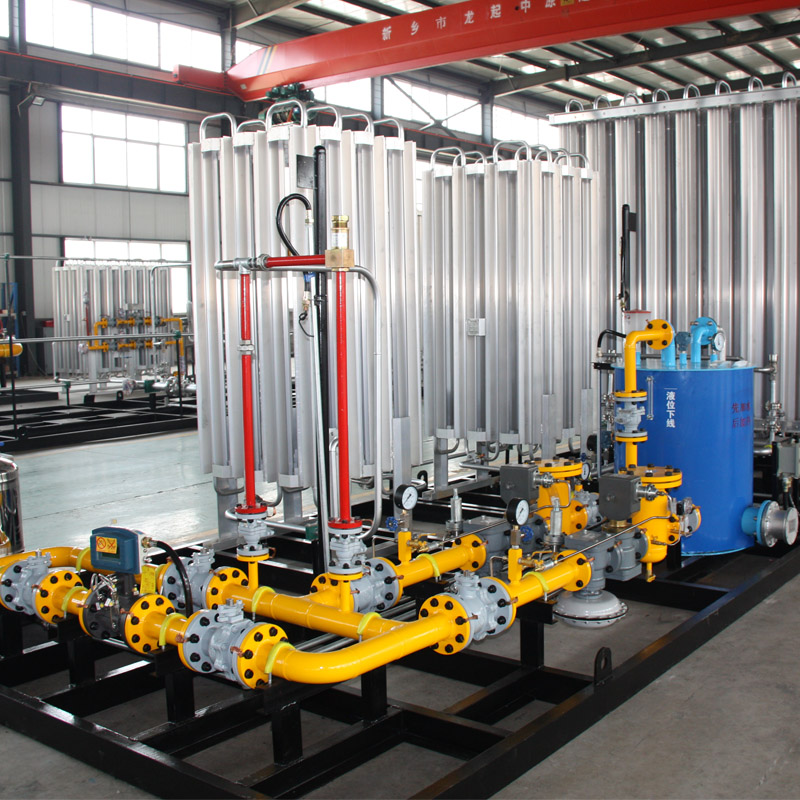
Nov . 26, 2024 04:04
Back to list
gas pressure reducer
Understanding Gas Pressure Reducers An Essential Component in Gas Systems
Gas pressure reducers play a crucial role in various applications where gas is utilized, ranging from industrial processes to residential heating systems. This essential component ensures that gases are delivered at a safe and usable pressure, protecting both equipment and end-users from potential hazards associated with high-pressure gas systems.
What Is a Gas Pressure Reducer?
A gas pressure reducer, often referred to as a pressure regulator, is a device designed to decrease the pressure of gas coming from a storage tank or high-pressure source to a lower, more manageable level suitable for use. It works by automatically adjusting the flow of gas to maintain a consistent output pressure, regardless of changes in input pressure or flow demands.
How Does It Work?
The fundamental operation of a gas pressure reducer involves a diaphragm or piston mechanism that responds to changes in downstream pressure. When gas enters the reducer, it pushes against this diaphragm. If the downstream pressure falls below the desired set point, the diaphragm moves, opening the valve to allow more gas to flow through. Conversely, if the downstream pressure exceeds the set point, the diaphragm closes the valve slightly, reducing the flow until the pressure stabilizes. This continuous feedback loop ensures that the gas is delivered at a safe and effective pressure.
Applications of Gas Pressure Reducers
1. Industrial Applications In manufacturing processes, gas pressure reducers are critical for operations that require precise control over gas flow and pressure. They are commonly used in welding, cutting, and heating applications where gases like oxygen, acetylene, and argon are employed.
2. Residential Systems Many households use natural gas for heating, cooking, and hot water. A gas pressure reducer ensures that the gas flowing into appliances remains at a level that is both safe and efficient, preventing potential damage to appliances due to pressure fluctuations.
gas pressure reducer

3. Automotive Industries In vehicles that run on compressed natural gas (CNG) or liquefied petroleum gas (LPG), pressure reducers are essential for converting the high-pressure gas from tanks to a level suitable for the engine to optimize performance and efficiency.
Importance of Safety Features
Safety is paramount when dealing with gas systems, and gas pressure reducers incorporate various features to mitigate risks. For instance, many reducers include built-in relief valves that release excess pressure to prevent potential explosions or equipment damage. Additionally, the materials and design of these regulators are critical in ensuring they can withstand high pressures and corrosive gases, thus enhancing their lifespan and reliability.
Selecting the Right Gas Pressure Reducer
When choosing a gas pressure reducer, several factors need to be considered
- Gas Type Different gases have varying properties and require specific types of regulators. - Pressure Ratings It’s important to select a reducer that can handle both the inlet and outlet pressure ranges for your application. - Flow Requirements Ensure that the reducer can accommodate the flow rate necessary for your systems. - Material Compatibility The material of the reducer must be compatible with the type of gas being used to prevent corrosion and ensure longevity.
Conclusion
Gas pressure reducers are vital in ensuring the safe and efficient use of gases across various sectors. Their ability to maintain a stable output pressure not only protects systems and appliances but also enhances efficiency in gas usage. As technology advances, newer models are becoming more durable and efficient, reflecting the ongoing importance of gas pressure regulation in our everyday lives. By understanding the operation and application of these devices, users can make informed decisions to optimize their gas systems, ensuring both safety and reliability.
Next:
Latest news
-
Safety Valve Spring-Loaded Design Overpressure ProtectionNewsJul.25,2025
-
Precision Voltage Regulator AC5 Accuracy Grade PerformanceNewsJul.25,2025
-
Natural Gas Pressure Regulating Skid Industrial Pipeline ApplicationsNewsJul.25,2025
-
Natural Gas Filter Stainless Steel Mesh Element DesignNewsJul.25,2025
-
Gas Pressure Regulator Valve Direct-Acting Spring-Loaded DesignNewsJul.25,2025
-
Decompression Equipment Multi-Stage Heat Exchange System DesignNewsJul.25,2025

